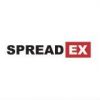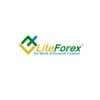Merck & Co. Inc. has announced its fourth-quarter earnings and sales results, exceeding expectations. The company’s success in the cancer and vaccine segments has contributed to its exceptional performance.
Financial Highlights
- Net loss of $1.226 billion, or 48 cents per share, compared to a profit of $3.017 billion, or $1.18 per share, in the same quarter last year.
- Adjusted earnings of 3 cents per share, surpassing the FactSet consensus of a loss of 11 cents per share.
- Revenue of $14.63 billion, representing a 6% increase from the previous year and surpassing the FactSet consensus of $14.489 billion.
It is worth noting that these results include a charge of $1.69 per share resulting from Merck’s collaboration with Daiichi Sankyo, a healthcare company based in Japan.
Financial Outlook for 2024
Merck is optimistic about its future performance and foresees the following for the full year 2024:
- Total sales between $62.7 billion and $64.2 billion.
- Adjusted earnings per share ranging from $8.44 to $8.59.
This earnings guidance also takes into account a one-time charge of 26 cents per share related to Merck’s recently announced acquisition of Harpoon Therapeutics Inc., a cancer drugmaker.
Merck’s recent achievements demonstrate its strong position in the market. With a focus on innovation and strategic collaborations, the company continues to show promise in delivering breakthrough solutions for patients worldwide.
Merck’s Growth Strategy Post-Patent Expiration
Merck, a leading pharmaceutical company, is gearing up for a pivotal moment as it faces the impending patent expiration of its highly successful cancer drug, Keytruda, in 2028. Keytruda alone contributed to more than half of Merck’s total pharmaceutical sales in the fourth quarter. However, the company is not relying solely on Keytruda’s success and has other strategies in place to sustain its future growth.
In the near term, Merck is eagerly awaiting regulatory decisions in the United States for two of its key products. The first is sotatercept, a promising treatment for pulmonary arterial hypertension, which could hit the market within the first half of this year. The second product is V116, a pneumococcal vaccine designed specifically for adults. These launches are of strategic importance to Merck’s CEO, Robert Davis, who emphasized their significance at the J.P. Morgan Healthcare conference in January.
Despite the upcoming challenges, Merck reported impressive sales figures for the fourth quarter. Keytruda brought in a staggering $6.608 billion, a 21% increase compared to the previous year. However, sales of the human papillomavirus vaccine Gardasil fell slightly short of expectations with $1.871 billion in revenue, a 27% increase from the previous year but below the FactSet consensus.
Another notable drug in Merck’s portfolio is Januvia, a diabetes medication. Januvia faced a decline in sales during the fourth quarter with earnings of $787 million, reflecting a 14% decrease from the previous year. This decline can be primarily attributed to generic competition in international markets and lower demand in the United States.
Merck recognizes the importance of diversifying its product portfolio and launching successful drugs like sotatercept and V116 to maintain its growth trajectory. These strategic moves align with the company’s determination to thrive beyond Keytruda’s patent expiration.
# Sales decline of COVID antiviral Lagevrio in Q4 2021
The sales of the COVID antiviral medicine, Lagevrio, experienced a significant decline of 77% compared to the previous year. In the fourth quarter, the total sales amounted to $193 million. This decrease can be attributed in part to a decrease in demand from Japan and Australia.
Merck’s performance in the market
Despite the decline in sales for Lagevrio, Merck, the pharmaceutical company manufacturing the antiviral, has showcased a positive performance in the market. Merck’s shares have witnessed a growth of 10.8% year-to-date. In contrast, the S&P 500 index has only gained 1.6% over the same period.
Impact of lower demand
The reduced demand for Lagevrio in Japan and Australia has had a significant impact on the overall sales figures. This decline underscores the evolving dynamics of the global market for COVID antivirals.
It is worth noting that further analysis and strategic adjustments may be necessary to regain momentum and boost sales for Lagevrio in these regions.








Leave a Reply